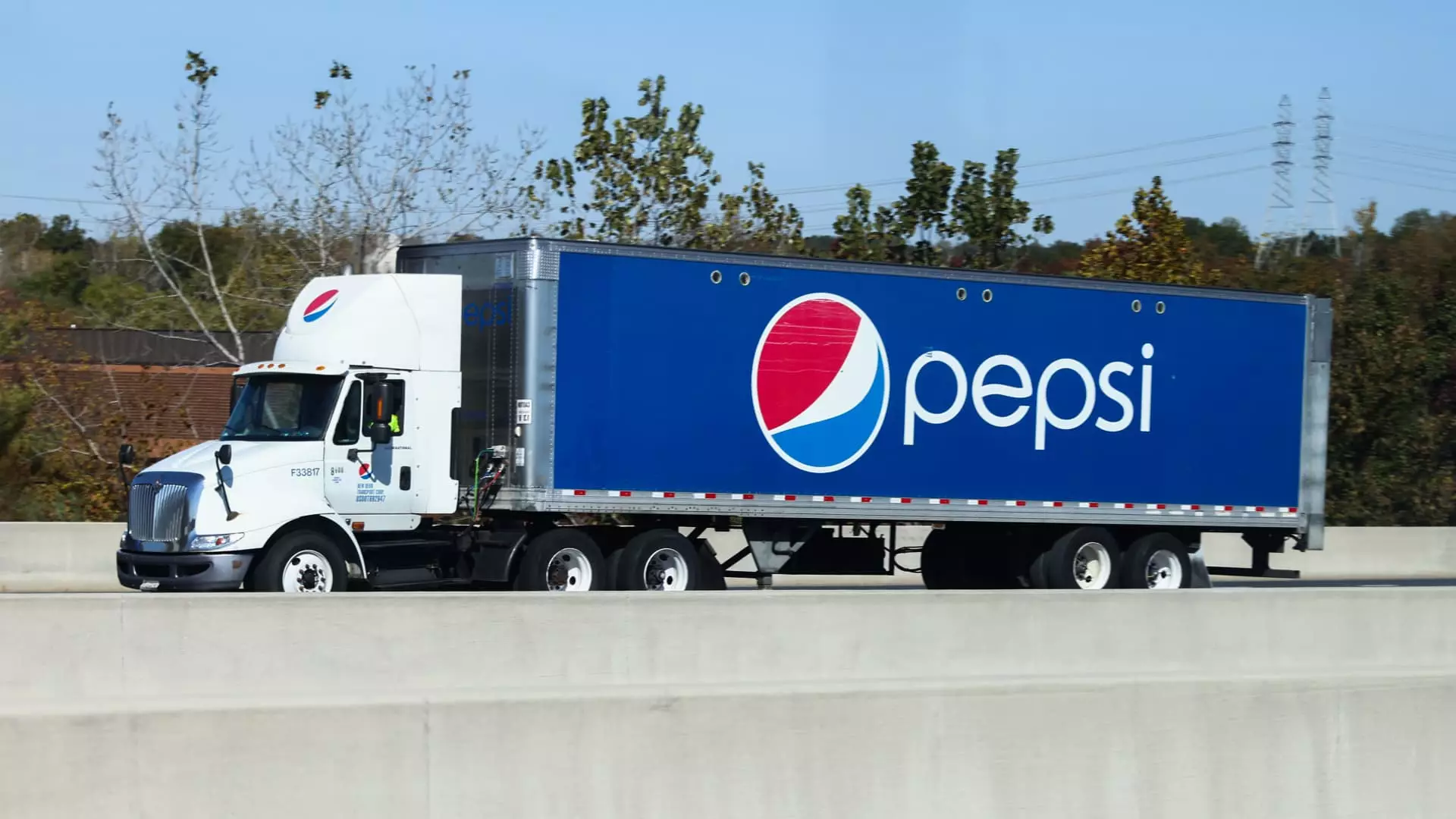In a notable downturn for one of the world’s leading food and beverage companies, PepsiCo recently revised its full-year outlook for organic revenue following two consecutive quarters of disappointing sales figures. The company’s unexpected performance can predominantly be attributed to significant recalls associated with its Quaker Foods North America line, alongside diminishing demand in the U.S. market and various operational challenges in international territories. This shift in fortunes has led CEO Ramon Laguarta to publicly acknowledge the difficulties impacting the firm’s growth trajectory.
For the fiscal year 2024, PepsiCo now expects only a low-single-digit increase in organic revenue, a stark decline from its earlier projection of 4% growth. Despite this downgrade, the company has maintained its forecast for a robust increase—at least 8%—in its core constant currency earnings per share (EPS), indicating a potential silver lining amid the tumultuous sales environment.
When analyzing PepsiCo’s most recent earnings report, several key financial indicators stand out in comparison to Wall Street’s projections. Analysts anticipated an adjusted earnings per share figure of $2.29; however, the company exceeded this expectation with a reported EPS of $2.31. Whereas revenue fell short of predictions, measuring $23.32 billion against Wall Street’s $23.76 billion forecast, the divergence prompts questions about the company’s growth strategies and operational efficiency.
Interestingly, the reported net income attributable to PepsiCo was $2.93 billion, equating to $2.13 per share. This signifies a decline from the previous year, where the company posted $3.09 billion or $2.24 per share. These figures underscore a crucial trend: consumers are shifting their purchasing behaviors, influenced by economic pressures and possible changes in lifestyle priorities.
The evolving landscape of consumer behavior is playing a pivotal role in PepsiCo’s challenges. In the last quarter, executives noted that shoppers across all income brackets are altering their buying patterns, leading to a notable decline in volume—a 2% drop in both the food and beverage divisions. Notably, Quaker Foods North America exhibited the most drastic downturn, reporting a staggering 13% decrease in volume. These trends indicate an urgent need for the company to reassess its market positioning and strategies.
The recall of certain food products due to potential salmonella contamination further complicates this picture. Initiating recalls in December and extending them into January left a lasting impact on consumer trust and perceptions of the brand. Although the company has since closed its facility linked to these concerns, the damage from such recalls often lingers longer than immediate impacts on sales.
PepsiCo’s various divisions are experiencing uneven performance results across the board. The Frito-Lay North America segment managed to limit its volume decline to 1.5%, demonstrating some resilience despite the broader market slowdown. The company’s initiatives to enhance product value and improve grocery store availability could play a vital role in restoring consumer interest in its popular snack offerings, which include Cheetos and Stacy’s pita chips.
Conversely, the North American beverage sector has similarly faced challenges, reporting a 3% decline in volume. Although brands like Gatorade have shown some revenue growth, the overall sector reveals systemic issues, particularly as consumer preferences shift towards healthier alternatives.
Looking forward, it is imperative for PepsiCo to navigate these obstacles thoughtfully. The company’s efforts to adapt to new consumer behaviors and preferences will be crucial. As the market for salty and savory snacks continues to underperform relative to previous years, PepsiCo must innovate and evolve its product lines to regain consumer loyalty and drive sales growth.
While PepsiCo has demonstrated resilience in some areas, the challenges presented by recent recalls, shifting consumer dynamics, and declining volume in key sectors call for a strategic reevaluation. The path ahead remains uncertain, and it will require careful navigation and innovative thinking to restore PepsiCo to its previous growth trajectory, ensuring its long-term viability in a competitive market landscape.


Leave a Reply